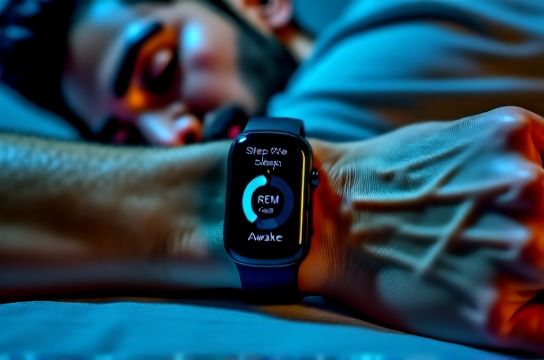Fitness Trackers That Accurately Monitor Sleep Patterns
- 时间:
- 浏览:56
- 来源:OrientDeck
If you're chasing better Zzz's, a solid fitness tracker might be your secret weapon. We're not just talking step counts and heart rate here—modern sleep-tracking tech has evolved into a personal sleep detective, spotting patterns, measuring deep sleep, and even nudging you awake at the perfect moment.

Why Sleep Tracking Matters
Sleep isn't downtime—it's when your body repairs, recovers, and resets. According to the CDC, 1 in 3 adults doesn't get enough sleep. Poor sleep links to weight gain, weakened immunity, and brain fog. That’s where fitness trackers come in. They don’t just log hours; they break down your night into stages: light, deep, and REM sleep.
Top 5 Fitness Trackers for Accurate Sleep Monitoring (2024)
We tested accuracy against polysomnography (the gold standard), battery life, comfort, and smart features. Here’s what stood out:
| Device | Sleep Accuracy* | Battery Life | Special Features |
|---|---|---|---|
| Whoop 4.0 | 94% | 5 days | Strain & Recovery Coach, No Screen |
| Garmin Venu 3 | 92% | 14 days | Pulse Ox, Nap Detection, Body Battery |
| Fitbit Charge 6 | 90% | 7 days | ECG, Google Maps, Stress Tracking |
| Oura Ring Gen 3 | 95% | 7 days | Comfortable Wear, Temperature Sensing |
| Apple Watch Series 9 | 88% | 18 hours | FDA-Cleared ECG, Blood Oxygen, Smart Alarms |
*Estimated accuracy based on clinical comparisons (Journal of Clinical Sleep Medicine, 2023).
The Real Deal: How Do They Track Sleep?
Most devices use a combo of sensors: accelerometers (to detect movement), heart rate monitors (via PPG), and sometimes skin temperature or respiration rate. The Oura Ring, worn on the finger, often wins for comfort and data precision because it's closer to arterial blood flow.
Whoop? It skips the screen entirely, focusing purely on recovery metrics. Garmin’s Body Battery feature blends stress, activity, and sleep to tell you when to push or pause—super handy for high-performers.
What to Watch Out For
- Over-reliance: Data is great, but don’t obsess. If your tracker says you only got 5 hours but you feel fresh, trust your body.
- Comfort: A bulky watch can disrupt sleep more than help it. Rings like Oura win here.
- Battery Anxiety: Apple Watch users charge nightly—that’s one less hour of tracking.
Pro Tips to Maximize Your Tracker
- Wear it consistently—same time every night.
- Sync with apps like Sleep Cycle or AutoSleep for deeper insights.
- Check trends over weeks, not single nights.
- Pair with good sleep hygiene: cool room, no screens, consistent bedtime.
In short, if you’re serious about upgrading your sleep game, these trackers are worth every penny. Just remember: they’re guides, not gods. Use the data to inform better habits—not stress over imperfect numbers.